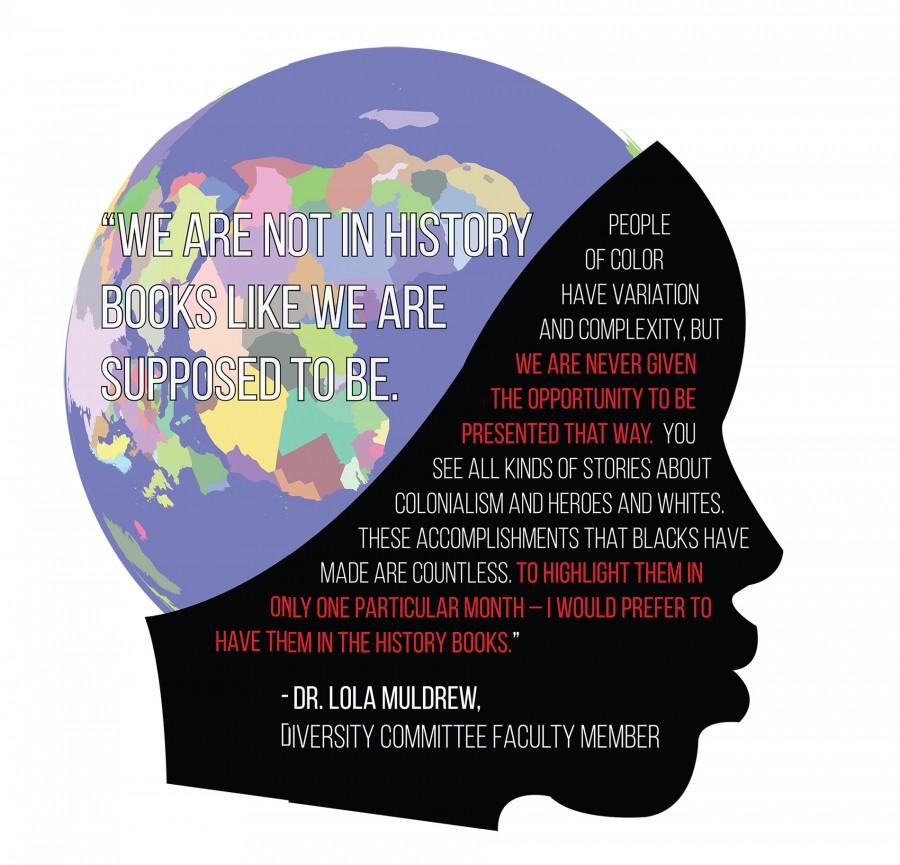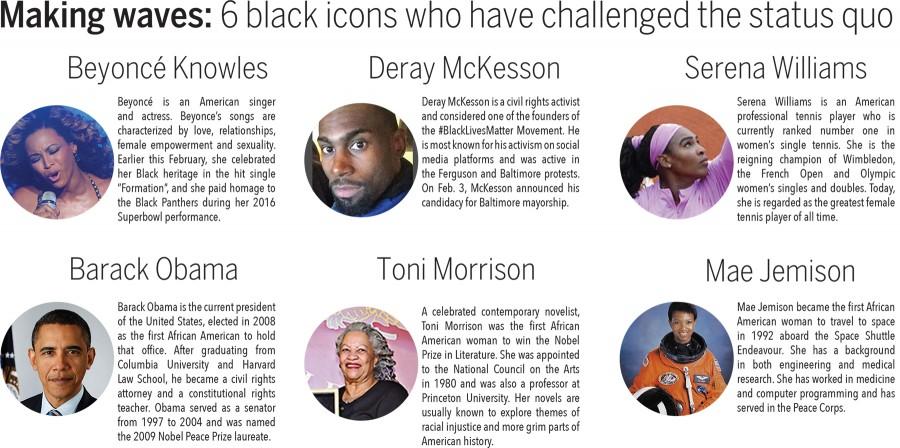Remembering history in color
Black people underrepresented in entertainment awards
March 3, 2016
This year marks the second year in which the Academy did not nominate people of color for major categories in the Oscars.
As people discussed racism and bias in the entertainment business, last year’s #OscarsSoWhite trend reappeared on social media for the same reason as before.
Dr. Lola Muldrew, a member of Harker’s diversity committee explained that racial supremacy still exists as one of the largest controversies in America today.
“The Oscars are a symptom. Hollywood is the disease,” Muldrew said. “The disease is the whitewashing of Hollywood. The whitewashing of Hollywood renders people of color invisible because all the complexity and variation in people of color more than ignored. It’s completely rendered invisible except in victim roles and violent roles. If you think about blacks, they’re slaves, or they’re homeless. But there is so much more complexity to being a black person, and that is rendered invisible by Hollywood. That’s very problematic because pop culture defines society. The most influential, dominant form of pop culture is the cinema. If that is rendering people invisible, then that’s a problem.”
On the other side of the coin, some believe that it may have just so happened that the lack of diversity was a result of white actors simply portraying better roles in movies.
“I don’t think it’s much of a race issue, more that it’s just that they are just picking who is the best actor,” Matthew McCallaCreary (10) said. “It just so happens that there were no black actors chosen.”
Ironically, the Academy Awards takes place in February, which is recognized as Black History Month in both Canada and the U.S. It started when the second week of February was announced to be “Negro History Week” in 1926 by the Association for the Study of Negro Life and History. Frederick Douglass and Abraham Lincoln, two men celebrated for their efforts to eliminate racial prejudice, were both born during the second week of the month.
As the name suggests, the week was dedicated to teaching the history of black Americans in public schools. This practice grew to be recognized by more school districts and states. In 1976, U.S. educators accepted the transition to “Black History Month,” in which students would discuss the neglected accomplishments of African Americans and how their contributions shaped society.
Some believe that Black History Month is unfair because it singles out black culture and celebrates its accomplishments for a short period of time, only to be forgotten during the rest of the year. Freshman Aaron Smith shares his opinion on the dedication of the month to African American culture.
“I think Black History month is a very good way for people to be educated on the culture, but maybe if they could consider other races and cultures it would be fair, rather than just black culture,” Aaron said.
However, black representation in education has gradually increased over the years with recognition of the writers, innovators and freedom-fighters who changed the course of the Civil Rights Movement.
“Things have changed a lot. At Harker, we are teaching more texts by African American writers,” American Literature teacher Dr. Pauline Paskali said. “In the junior year we’ve actually taken out ,at least temporarily for now to see how it goes, the ‘Adventures of Huckleberry Finn,’ which also is a text that deals with race. But now, we’ve replaced that with a text by an African American writer, Toni Morrison, ‘The Bluest Eye.’ And that is the first time in American Literature class that we’re teaching a novel written by an African American writer.”
Recently at the Grammy’s, Kendrick Lamar won Rap Album of the Year for “To Pimp a Butterfly,” an album that played as the soundtrack to the #BlackLivesMatter movement. The topics of his award-winning songs include racial struggles in America, most prominently police brutality and lack of opportunity in black communities.


